
Your car’s instrument cluster is more than just an assortment of gauges and lights; it’s the central hub of information that keeps you updated on your vehicle’s vital statistics. From your speed and fuel level to warning lights, the instrument cluster plays a crucial role in ensuring your safety and the overall functionality of your car. However, like any other component, instrument clusters can experience problems that need attention.
In this article, we’ll delve into the world of instrument clusters, discussing what they are, why they matter, and the five most common issues that car owners might encounter. Whether you’re experiencing gauge inaccuracies, malfunctioning lights, dead pixels on your digital display, warning lights that won’t turn on or won’t turn off, or even a complete power loss in the instrument cluster, we’ve got you covered with valuable insights into what might be causing these problems and how to address them effectively.
Before we dive into the specifics of common instrument cluster problems, let’s ensure we’re all on the same page about what an instrument cluster actually is. Your car’s instrument cluster, often located behind the steering wheel, is a centralized panel featuring various gauges, indicators, and displays. It’s responsible for providing you with real-time information about your car’s performance, status, and any potential issues.
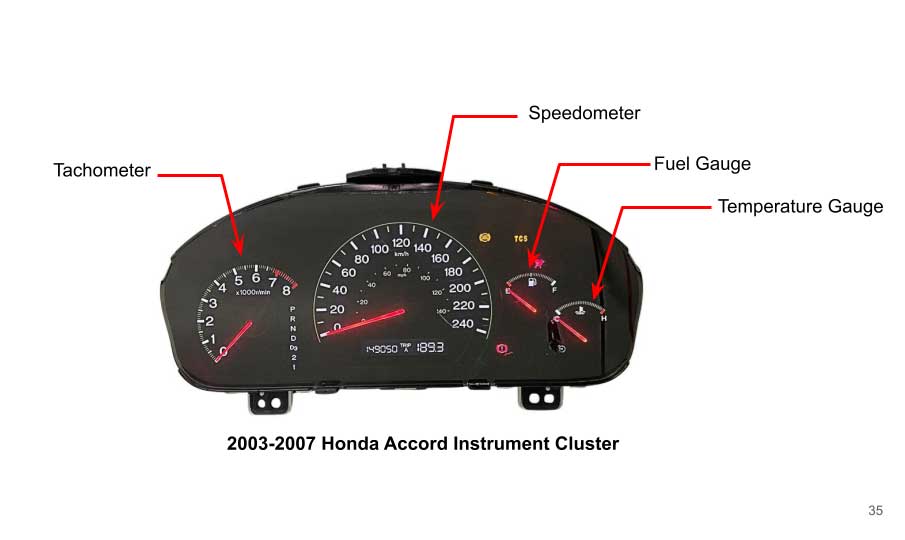
This gauge indicates your current driving speed.
Shows your engine’s revolutions per minute (RPM), which is particularly important for manual transmissions.
Keeps you informed about the amount of fuel in your tank
Measures oil level in your cars engine
Monitors your engine’s temperature, alerting you to overheating.
These icons notify you of issues like low oil pressure, battery problems, or engine malfunctions
Tracks the total distance your vehicle has travelled
Modern clusters often feature digital screens that provide additional information and options.
Let’s now turn our attention to the instrument cluster, a vital component of your vehicle’s dashboard. In this section, we’ll explore common issues that can affect the instrument cluster and the reasons behind these problems
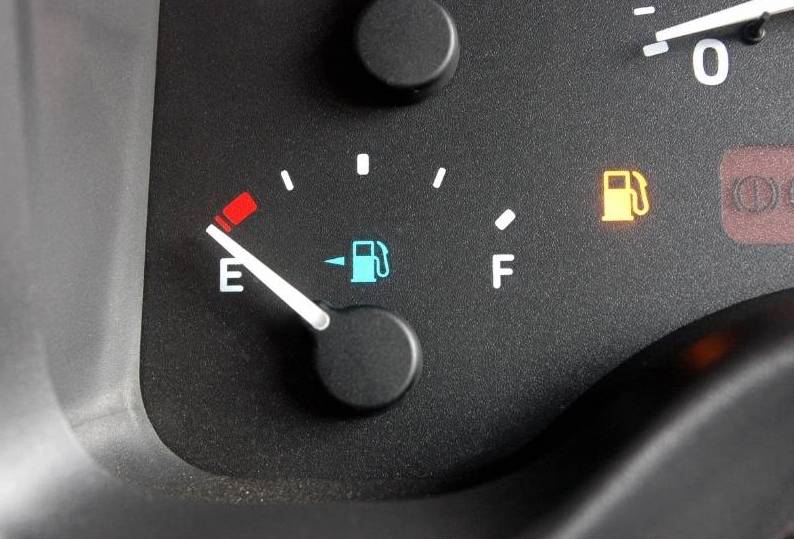
Problem:
One of the most frequent issues car owners encounter is inaccurate gauge readings. Your speedometer might show you’re traveling at 60 mph when you’re really going 30 mph, or your fuel gauge could display a full tank when you’re running on fumes.
Causes:
Solution:
To address these problems, consult with a professional mechanic who can diagnose and replace the faulty components. Replacing a speed sensor, fuel level sender, or fixing wiring issues should resolve the problem.
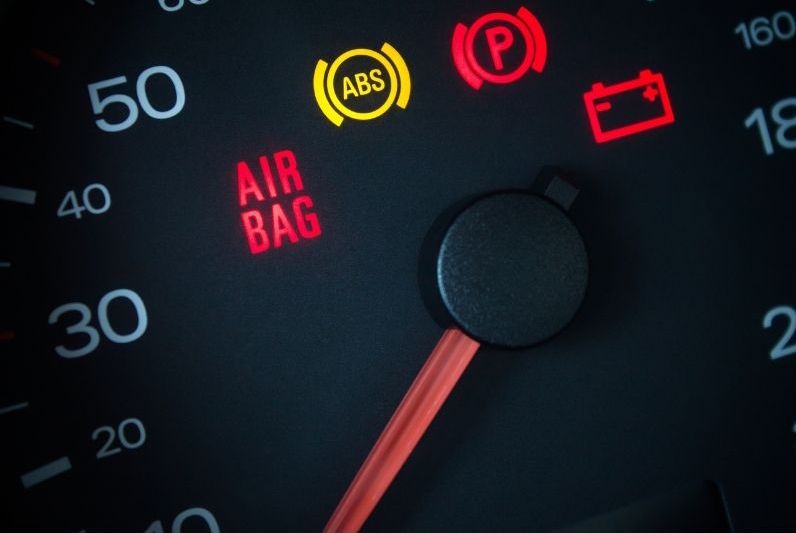
Problem:
If the lights on your instrument cluster are flickering, dim, or completely out, it can be both frustrating and dangerous. Visibility is crucial for safe driving, and malfunctioning lights can impede your ability to read the gauges and warning lights.
Causes:
Burned-Out Bulbs: Just like household light bulbs, the bulbs in your instrument cluster can burn out over time.
Dimmer Switch Problems: Issues with the dimmer switch can lead to problems adjusting the brightness of your cluster lights.
Voltage Issues: Fluctuations in electrical voltage can affect the brightness and reliability of the lights.
Solution:
Depending on the cause, you may need to replace burnt-out bulbs, repair or replace the dimmer switch, or address voltage irregularities.
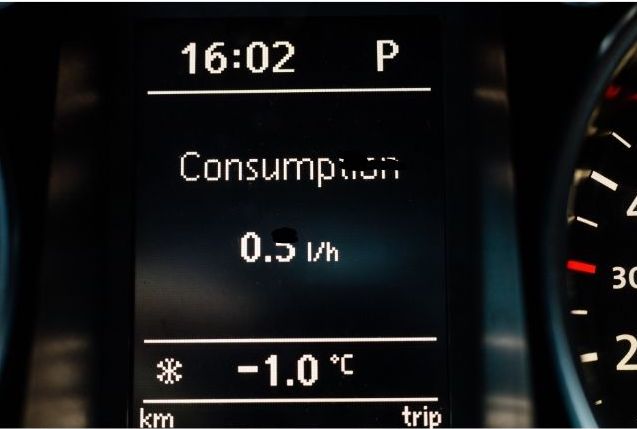
Problem:
Modern vehicles often feature digital displays in their instrument clusters. If you notice dead pixels, lines, or complete malfunction of these screens, it can be frustrating and reduce the visibility of important information.
Causes:
Solution:
if the issue is due to screen damage, you might need to replace the screen. For software glitches, updating or resetting the system may resolve the problem. In the case of worn-out components, professional repair or replacement may be necessary
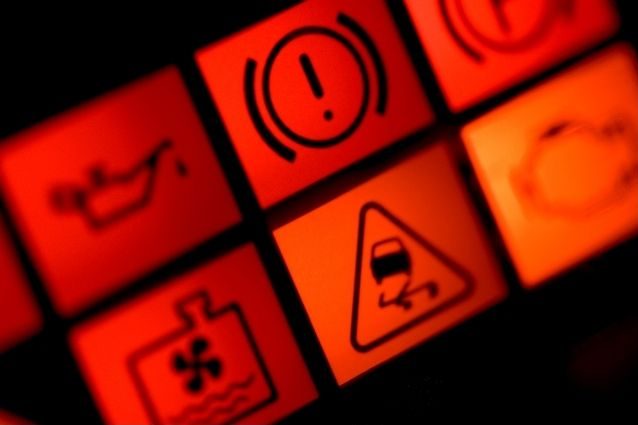
Problem:
Warning lights on your instrument cluster play a crucial role in alerting you to potential issues with your vehicle. If they fail to light up when needed or remain constantly on, it can lead to safety and performance concerns.
Causes:
Burned-Out Warning Light Bulbs: The warning lights themselves can have bulbs that burn out over time.
Faulty Sensors: Sensors that trigger warning lights may become malfunctioned, leading to false readings.
Electrical Issues: Wiring problems or issues with the instrument cluster’s circuitry can disrupt warning light functionality.
Solution:
Addressing this issue typically involves identifying the specific cause, whether it’s a burnt-out bulb, a faulty sensor, or electrical problems.

Problem:
When the entire instrument cluster loses power, it can result in a complete blackout of all gauges, displays, and lights, leaving you without crucial information while driving.
Causes:
Solution:
Start by checking the fuses related to the instrument cluster and replace any that are blown. If the issue persists, a mechanic can further diagnose the problem and repair or replace components as necessary.
Ensuring the longevity and reliability of your instrument cluster requires some proactive steps. Here are some tips to help you maintain a healthy and functional instrument cluster:
By following these maintenance tips, you can help keep your instrument cluster in optimal condition, ensuring accurate readings and a clear view of crucial information while driving.
Your vehicle’s instrument cluster plays a fundamental role in keeping you informed about its performance and safety. As we’ve seen, common problems can arise, affecting everything from gauge readings to warning lights and digital displays. Knowing the causes behind these issues and how to address them is essential for maintaining a safe and reliable driving experience.
At Dashboard Instrument Cluster, we’re here to help you with instrument cluster issues. We specialize in both repair and replacement services for instrument clusters in all makes and models of cars, trucks, tractors, and more. Whether it’s a simple instrument cluster repair, a complete replacement, or expert advice, our team is dedicated to ensuring your instrument cluster remains in top condition. Your safety on the road is our priority, and we’re committed to keeping your instrument cluster healthy and your vehicle running smoothly. Don’t hesitate to contact us for any instrument cluster needs you may have.
Share:

We will try to give you an exact quote in 1 Business day